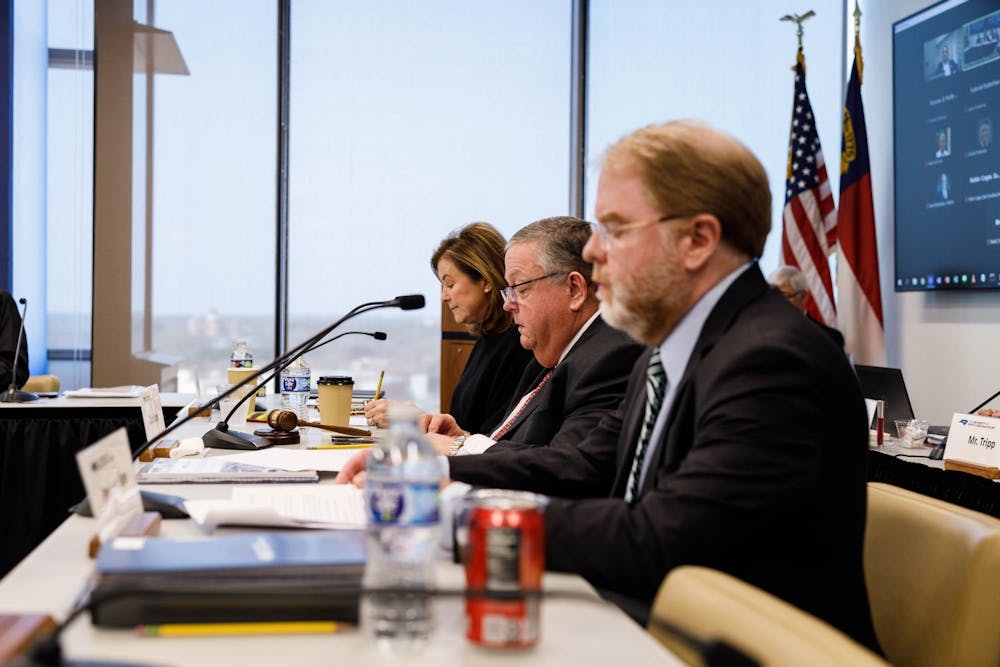With former Chancellor Kevin Guskiewicz's departure to Michigan State University and Lee Roberts acting as interim chancellor, the UNC System Office is beginning the search for the next University Chancellor. University Editor Lauren Rhodes and Assistant University Editor Ashley Quincin sat down with UNC System President Peter Hans to discuss the search process and campus community member concerns.
This interview has been edited for brevity and clarity.
The Daily Tar Heel: You've spoken about listening to faculty and students and what they want to see in a chancellor. Do you have anything that you all are specifically looking for as you start to go through applicants?
Peter Hans: This is one of my favorite questions because they tend to be evergreen, right? We're looking for personal integrity, leadership capability, vision for the institution, an ability to bring people together, not drag them apart — some things like this that pretty much don't vary on a broad level from institution to institution or search to search. A lot of that tends to come out also in the listening forums. We want people to have that opportunity to participate and be part of the process. They may reveal things that we have not thought of, but those tend to be constant with me about what I'm looking for in a chancellor.
DTH: Some community members are concerned about Chancellor Lee Roberts' lack of previous professional administrative experience. What qualities led you to think that Roberts would be a good candidate to appoint for the interim chancellorship?
PH: That's a key responsibility for the president. That's always been the role — you fill an interim if it arises. Actually, back in 1999, then-President Molly Broad appointed Chancellor [Michael] Hooker, who was a great chancellor and tragically died of cancer. She appointed Bill McCoy as the interim chancellor who had basically a year, I think, of working with the UNC System in finance and administration to be the interim chancellor here. He was a businessperson; his career had been with BellSouth and AT&T. So, there's actually a precedent with us. That's the one thing about having an institution that's been here since 1789 — there's very little new ground. We've got historical precedent for everything, even a chancellor who went to Duke [Paul Hardin].
DTH: Some students and faculty have raised concerns about political interference at the University. What plans do you have to assuage these fears?
PH: It's difficult to compete with social media and conspiracy theories these days. I think you've got to draw the line between what's appropriate public input and what's political interference. There seems to be this idea on the part of some that there should be no public input. It should be entirely within the campus, any decision like this, and that's just not realistic. We're a public university. People in North Carolina built this place — they fund this place. They're going to have thoughts, and I think that's a good thing. I think that's a strength for Chapel Hill and really the whole UNC System.
DTH: In May of 2023, the Board of Governors adopted a policy to allow them to be more involved in the search for chancellor. What prompted that change?




